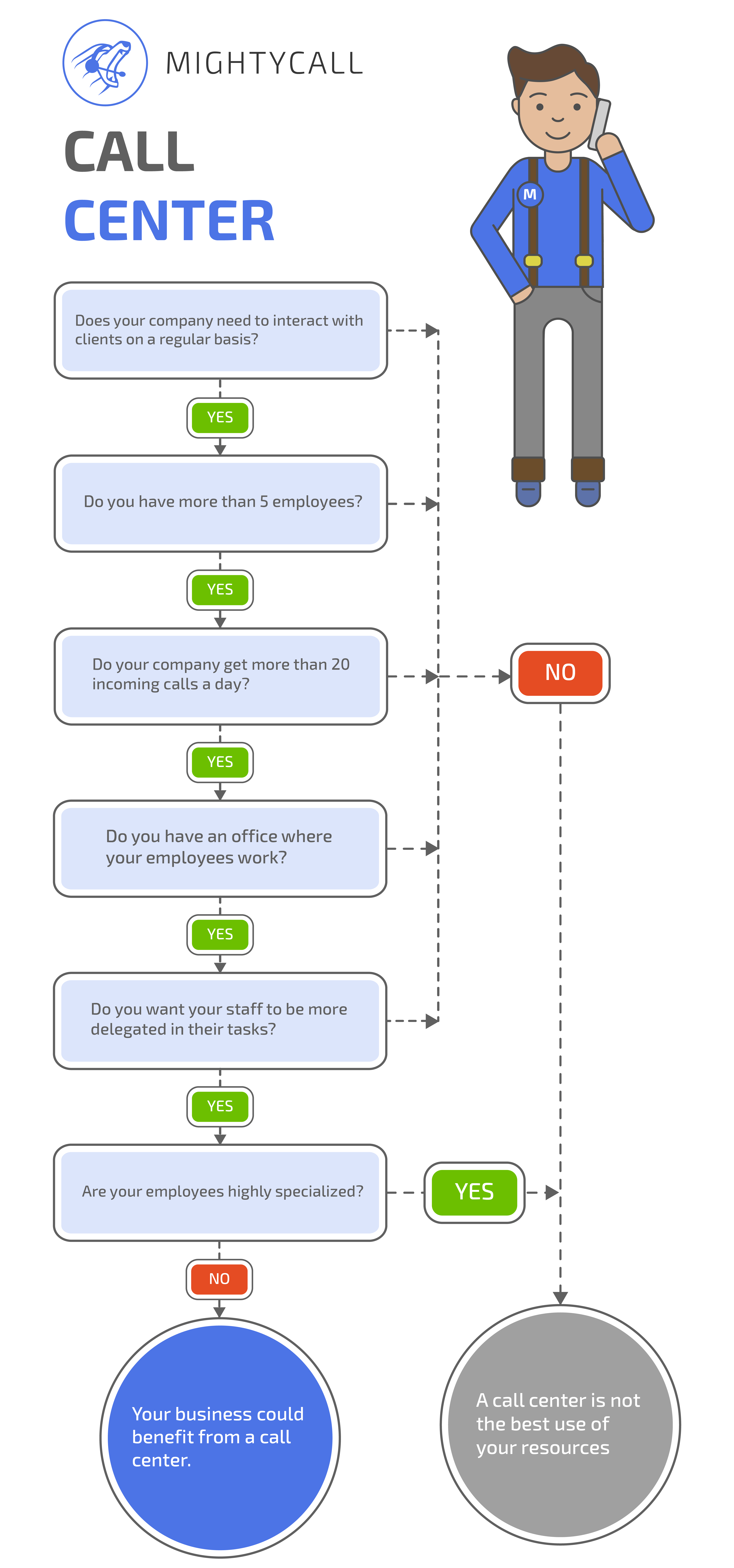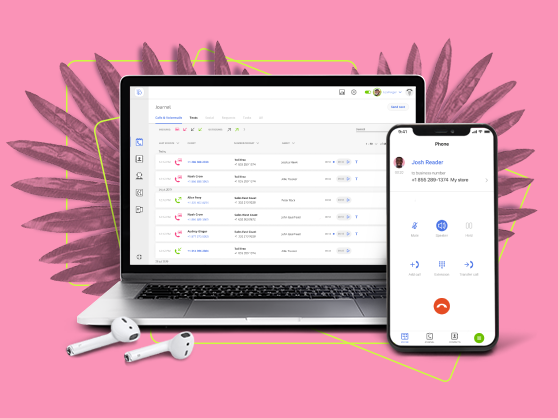You might see the phrase ‘contact center’ and involuntarily squirm. Your fears are unaccounted for however, as contact centers are not the same thing as call centers.
Based on common experience, your mind might flash to images of hundreds of people crammed into a basement full of computers somewhere in India cold-calling you three times a week ad nauseam despite your constant proclamations to stop calling.
Relax, this isn’t that. The question posed at the top is about small business, not monolithic companies and industries manipulating outsourcing and labor laws to annoy Americans senseless.
Contact centers are more about dedicating a portion of your resources to customer communication. Every business could use more of that, right? Well, read on to see if this modern configuration could benefit you.
What is a contact center?
A contact center is a portion of your business or staff focused largely on fielding customer calls and communication. That is key—you aren’t cold-calling people and giving your business a bad name, but merely optimizing the respond time to your customers’ reaching out to you.
I noted that contact centers are modern above, because they are the natural evolution to call centers, or at least those call centers within reason. While both are dependent on phone usage, contact centers take a unified communications approach, spanning multiple channels such as email, text messages and social media in addition to answering phone calls.
A contact center doesn’t need to hit a certain size to qualify as such either—you could post a single employee to monitor customer interactions, and as long as they do so on multiple channels, that would qualify as your business running a contact center.
How do contact centers increase the efficiency of communications?
They do so by unifying all the ways you could talk to customers into a single place, making it easier to manage and track each conversation/text/tweet/etc. Instead of having your employees go back and forth between multiple channels to monitor customer communication, everything is funneled to a single location that is more convenient to follow. That means better delegation and fewer missed sales/support opportunities.
By subscribing to contact center software—these services are typically software-based, meaning you don’t need any special equipment—you get multiple features, or tools, that automatically help speed up each communication as well.
One of the main reasons people hate call centers is because it’s impossible to get anything done by calling them—normally you’re just bounced into a call queue. With contact centers however, basic features like an auto-attendant, call distribution and call transfers make sure that you wind up speaking to the right person as quickly as possible.
The auto-attendant won’t put you in a call queue, but direct you to the specific extension you need. If you aren’t calling for anyone specifically, call distribution will make sure your call gets answered through any number of configurations. Even if you end up in the wrong place or need to talk to another person, call transfers get that done for you.
This heavy phone-focus is true of call centers as well, and you likely have bad memories of them, so reconsider this through the scope of your business. Call centers often have hundreds of people making and receiving calls at the same time, as they are factories meant to frustrate angry and dissatisfied customers. Your small business likely has less than a few dozen employees, meaning the optics of running a system with these features will generally cover any amount of customer communication you get.
Should my business test out a contact center?

Your business could benefit from a call center: Even with just a few people, give them their own area in the office and direct different calls—sales, inquiries, complaints—to different numbers or extensions to maximize your staff and your phone time.
How can I do that?
Getting a contact center up and going is easy, as there is typically no hardware required. All it takes is the manpower to cover the level of customer interaction your business gets and the right software.
As we mentioned before, manpower shouldn’t be an issue. With the features that most softwares offer, communications are streamlined to allow as few people as possible to handle your business communications—allowing you to save on staff or delegate employees to other tasks.
For the software, well, MightyCall more than has you covered. For less than you’d pay a receptionist for a day, you can get a month of coverage full of features and abilities to uniform and improve your business’s communications. You will never miss a call or overlook an email from a customer again, and you’ll stay on top of everything with less effort than ever before.
If you’re skeptical about how useful a contact center can be for your business, you can even give it a test run. MightyCall offers a free 7-day trial AND a 30-day money-back guarantee.
Unified communications and VoIP work, and if you’re willing to take the first step, you’ll see why.













